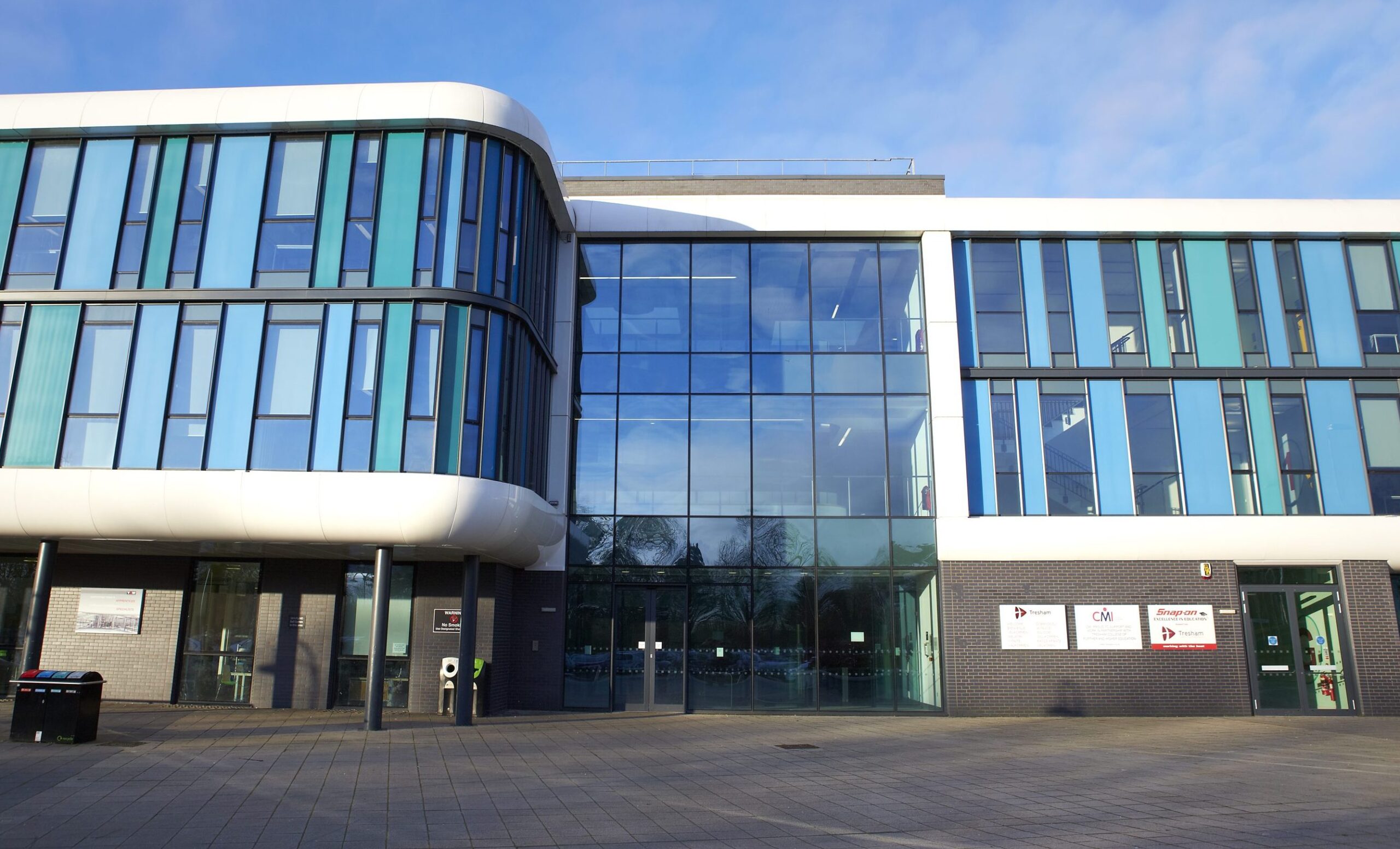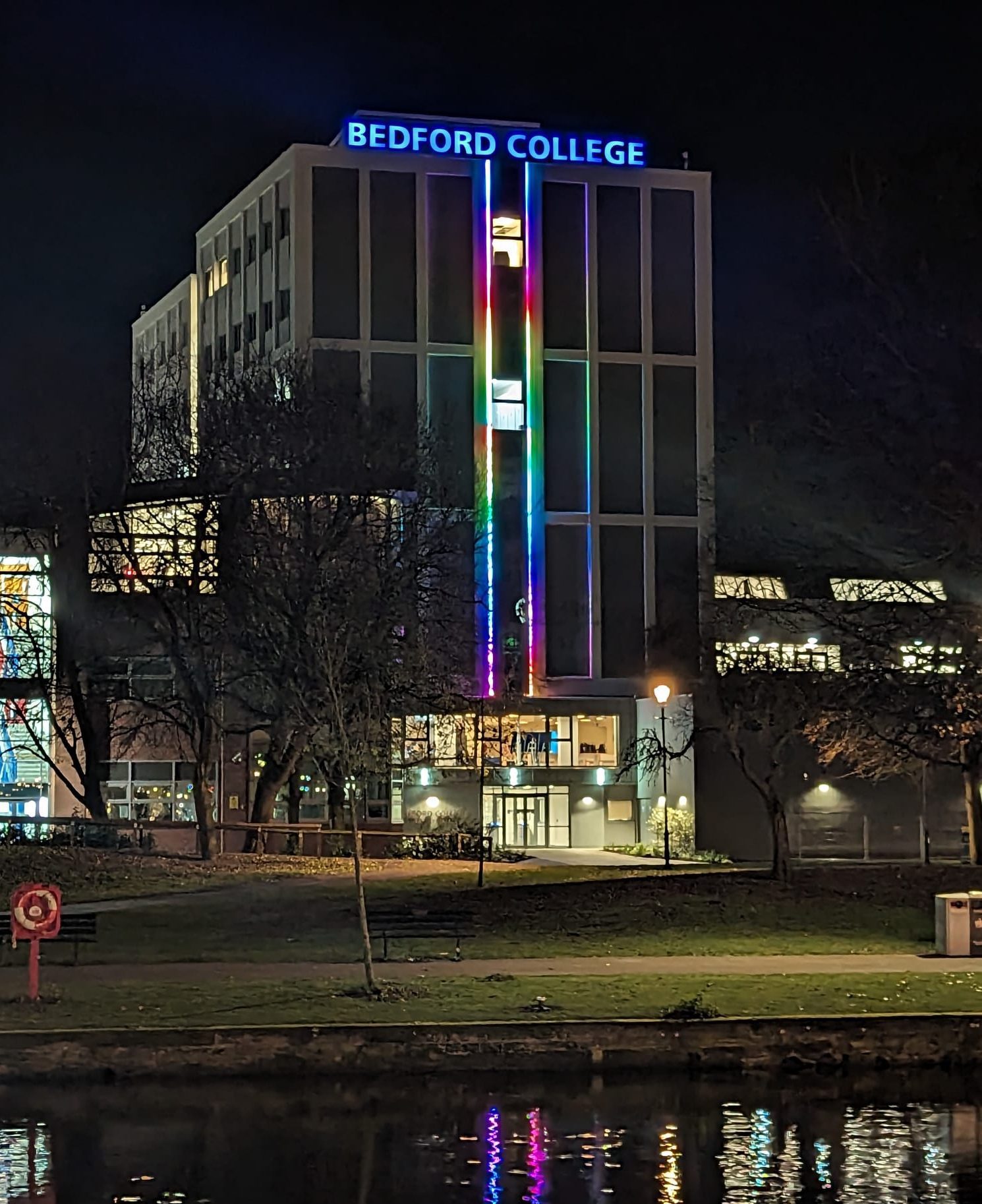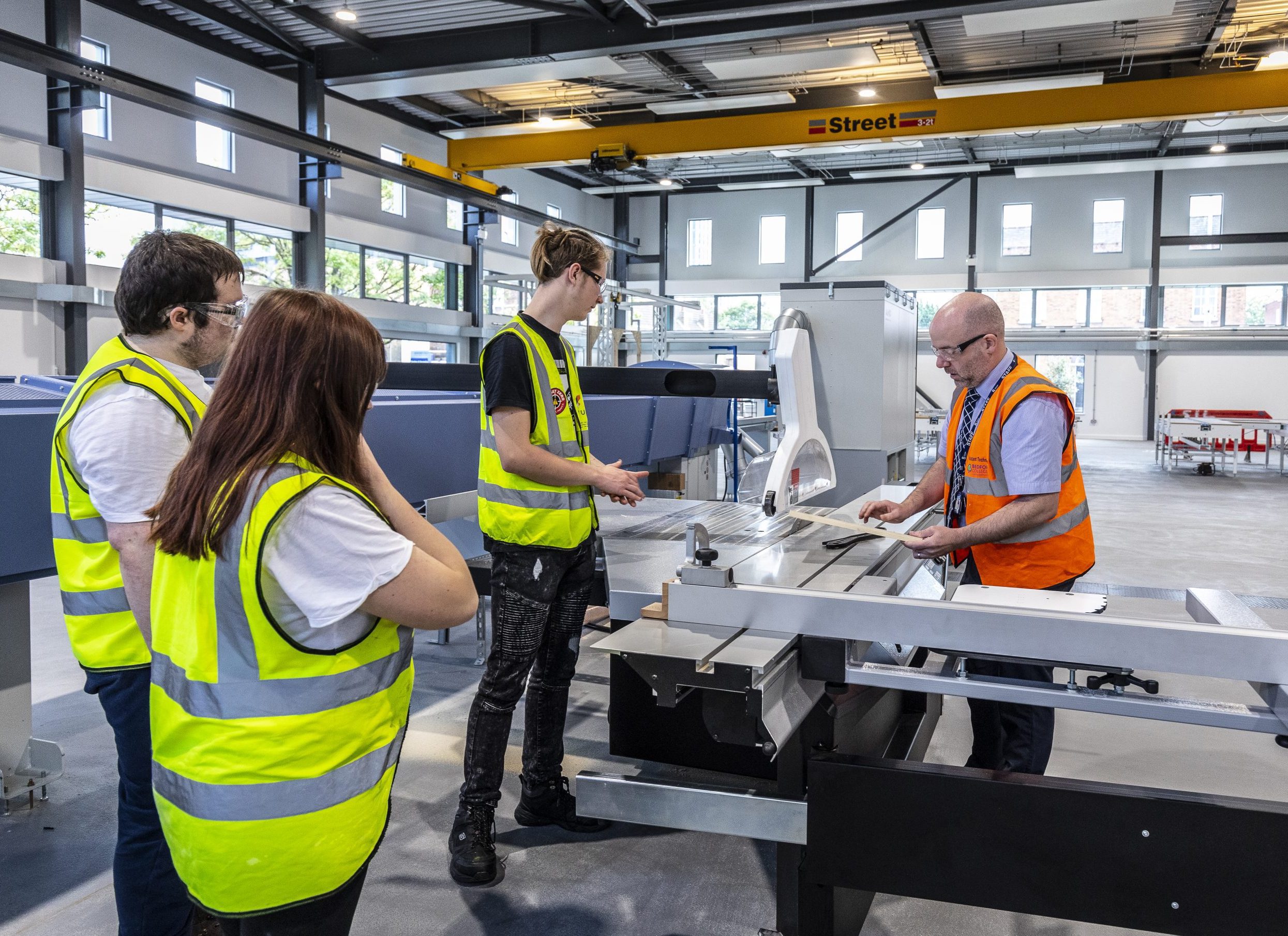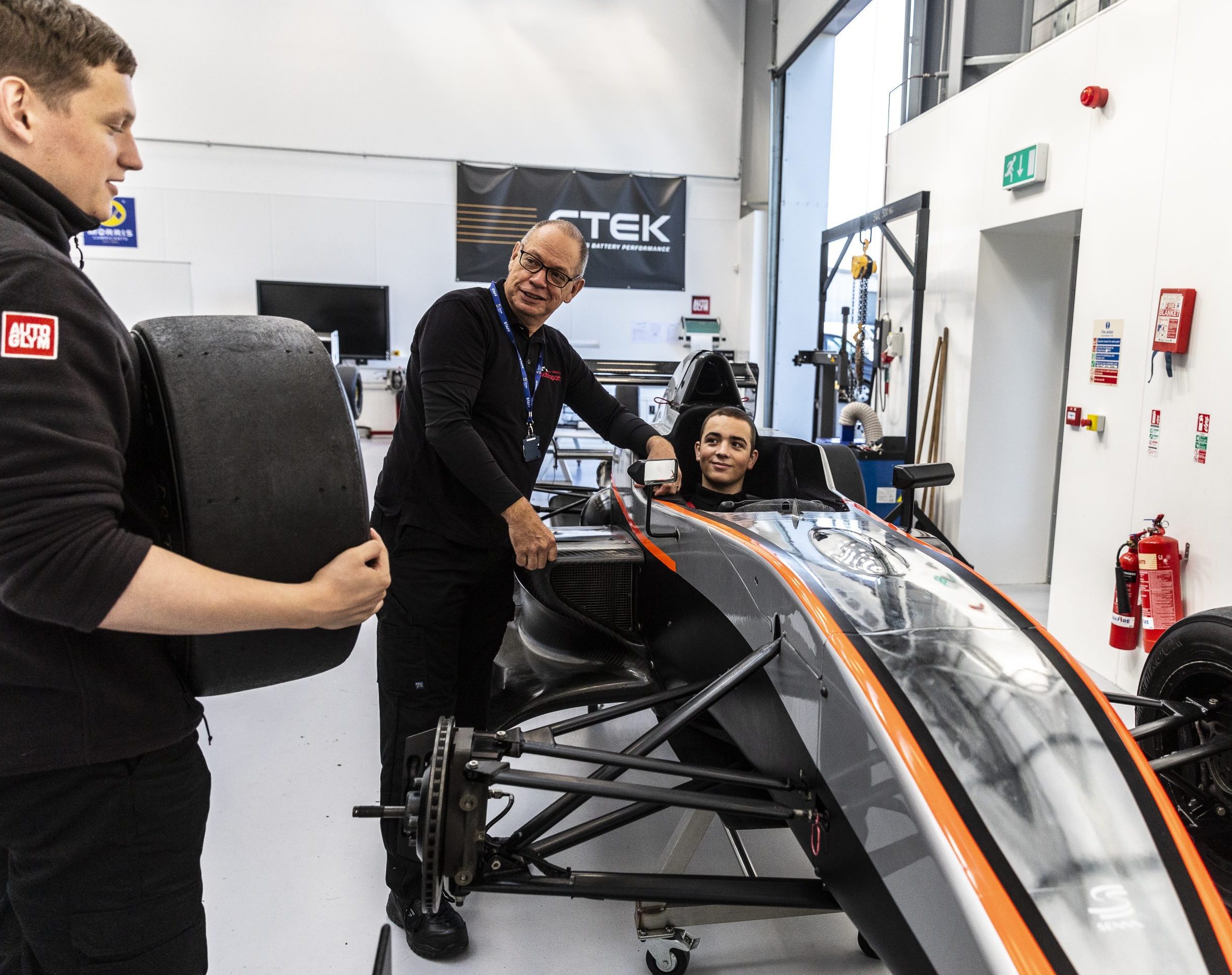Just over a year ago, Yiannis Koursis OBE was appointed CEO of The Bedford College Group, the largest provider of education in the South-East Midlands.
The group comprises Bedford College, Central Bedfordshire College and Tresham College, as well as The Bedford Sixth Form, The Corby Sixth Form, land-based specialist college Shuttleworth College and the National College for Motorsport at Silverstone. The group also has community-based Learning Centres in Bedford, Corby, Kettering and, newly opened, in Wellingborough that offer IT training.
With around 18,000 students, The Bedford College Group plays an enormous part in the economic development of the region, its businesses and its communities. Yiannis Koursis OBE spoke to All Things Business about how that role looks and how it needs to grow and develop to continue to serve the communities in which the college operates.

You have a business background, how important has that been in your later roles in education?
I did come from a business background, but I’ve now been in education for around 20 years. I believe that having experience as a senior leader in both education and business enables me to apply business systems in an education setting.
We are not always very good within the sector overall at developing and recognising the duality of the profession. I had to go through Postgraduate Certificate in Education (PGCE) and teach in the classroom – I loved that, that is where you see the most immediate transformation and the effects of your work. But management and leadership are very different things, and an education leader needs to understand areas like the financial aspects, people and HR, marketing and sales.
You need a business toolkit, and having those skills is really powerful.

Would you describe The Bedford College Group itself as a business?
I don’t like to describe it as a business, but it’s a difficult balance. We don’t have shareholders and profit targets, but we are a large employer, with more than 1,600 employees and an annual income of just over £86m Our 18,000 students are customers, but we have to show a return for every pound of government money, and there is so much more to what we do.
Because of the size and diversity of our group, we describe it as a family of colleges. All our colleges and localities are very different, and we have to respect that while still building a culture and a set of values that run throughout what we do.
Wherever we are based, we are an anchor. We have a civic duty and part of that is helping to improve people’s lives, whether that is through community groups or clubs using our facilities, or through helping those living in the South-East Midlands to reach their full potential through education, upskilling, reskilling, raising aspirations and reducing inequality.
What does education need to do to meet the needs of businesses?
The Bedford College Group is already connecting with around 1,200 businesses across our locales, and we are members of, and work with, both local Chambers – Bedfordshire and Milton Keynes & Northamptonshire. We are very proud of our Chambers; they are very good at representing businesses and engaging in the skills agenda.
There are ways of ascertaining what businesses need and we are always keen to get their support in terms of developing the future curriculum, meeting their workforce needs and working in partnership. But, whilst important, businesses are not our only stakeholder. If we only did what businesses wanted us to do, it would all be about construction, engineering and digital. We offer those programmes, but there are other needs. You won’t necessarily hear businesses talking explicitly about health and social care skills, the need for nurses, hair and beauty courses. As an education provider we must look at the whole of society.
 Our role is not about sending everyone to university. If you are a student and what gets you up in the morning is studying a Business programme, and working on getting maths and English GCSE, me sitting here telling you you’re going to be an engineer will not make you want to be an engineer.
Our role is not about sending everyone to university. If you are a student and what gets you up in the morning is studying a Business programme, and working on getting maths and English GCSE, me sitting here telling you you’re going to be an engineer will not make you want to be an engineer.
The unfortunate background to our work is that around 50% of students who come to us do so without English and maths GCSEs at grade 4 (equivalent to a grade C) or above. Our first goal has to be to get them through those fundamental qualifications because without them, they’re not going to be able to bring the basic skills to a job. Without the computational ability and the ability to write report they will indeed struggle.
Business needs are important, but students come to us with ambitions and ideas of their own, and those might not be what businesses are asking for. We have to think about skills replacement in the community and meeting everyone’s goals and aspirations.
So, you see the role of further education as student-based as much as to meet the skills needs of business?
Education is about adding public value. And because of that it is really difficult to measure immediately. It’s not something you can check as it comes off the production line.
Skills, training and qualifications are grouped together as if they mean the same thing, but they don’t. Education is a lifetime thing – you get an education if you go to the theatre, or if you listen to some- one else’s views on a podcast. There are parts of your life when you are having training, there are times when the focus is on qualifications. They are different things, but throughout it all, education goes on.
As a further education provider, we are in the middle; schools on one side, businesses on the other. There’s a lot of work to do on the transition from school to FE. Is there anything we can do at Years 7, 8 and 9 so that children can be more excited about maths and English? Imagine if we could increase the number of students joining us for the start of their course having achieved grade 4 or higher in English and maths.
More students do their Sixth Form years in colleges than in schools and our schools liaison team have already visited around 60 schools in the first half term of this year. Schools might think we are there to take students away, it’s not about that, it’s about getting young people to where they need to be in what can be a very challenging system.
In what way does the system bring challenges?
Well, firstly, we are measured on results and qualifications, not on our impact on society or the community, so that is a challenge.
And, in a sense, I believe businesses are not preoccupied with qualifications, in the main, as long they have access to skilled people. For them, it’s about skills not qualifications, but that’s not how we’re measured and funded.
 Unfortunately, given the financial pressures today, employers want skilled and work-ready people, productive people who can hit the ground running. I understand that. And it’s very difficult to come out of education totally work-ready.
Unfortunately, given the financial pressures today, employers want skilled and work-ready people, productive people who can hit the ground running. I understand that. And it’s very difficult to come out of education totally work-ready.
Today’s generation are no less work-ready than those of 30 years ago, but businesses don’t have the capacity now to accept someone who still needs to develop, who needs to learn from colleagues and gradually pick up the practical skills. They need someone who is productive from the start.
We also have a challenge in that the school system is more of a market. If there’s an academy or a MAT and I go and knock on their door to talk about working together, it is entirely up to them whether they want to engage or not. They are not obliged to work with us, or anyone else, even if we think they’d find it useful. I have to say there are MATs that we work with very successfully indeed.
You’ve spoken about public value from education, can you define public value?
This year, we have 18,000 students: 9,500 of those students are 16 to 18 years old, the rest are adults. The academic value of coming to us might be going on to university, or gaining a skill that enables them to get meaningful employment, or for adults it might be getting a promotion because we have helped them to upskill, removing the barriers that were stopping them being able to get a better job.
Improving social mobility and access to jobs is part of a person’s wellbeing. What that looks like is different in each of our areas – the needs in Dunstable will be very different to the needs in North Northamptonshire.
And, we must think about what education means not only to the student but to their families; how it affects their financial situation; how it affects the next generation after them and raises their aspirations in turn.
 Going back to the 50% of students coming to us having not achieved a grade 4 or higher in maths and English GCSEs: what we must never do is train people to give up. If they don’t get the results they want at 16, we need to show them that there are other ways.
Going back to the 50% of students coming to us having not achieved a grade 4 or higher in maths and English GCSEs: what we must never do is train people to give up. If they don’t get the results they want at 16, we need to show them that there are other ways.
If we can encourage them to have another go and not to give up; if we can say to them ‘that’s fine, you didn’t get it first time, but you can try again and from there you can move on.’ If we can show them they can succeed, then we can get them to look again at what they want to do, help them see the possibilities and change their minds. Learning not to give up is a skill that will get you through life.
For more information about The Bedford College Group visit the website













